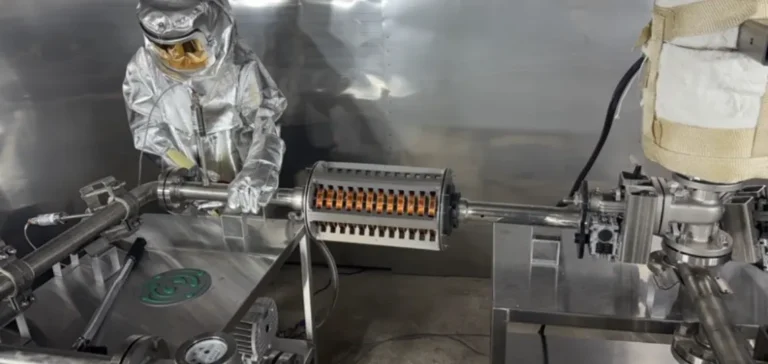NANO Nuclear Energy has completed the assembly of its Annular Linear Induction Pump (ALIP) prototype, a patented technology designed for thermal management in advanced nuclear reactors. This pump, now integrated into a controllable test loop at the company’s demonstration site in Westchester County, United States, is intended to validate variable design parameters as part of the Small Business Innovation Research (SBIR) Phase III programme.
Towards industrial demonstration
The development of the ALIP comes as NANO Nuclear Energy advances its microreactor portfolio, including the flagship KRONOS MMRTM Energy System project. The achievement of this technical milestone demonstrates the company’s ability to transform an innovative concept into an operational solution onsite. According to company management, the maturity reached through this programme will allow commercialisation of the induction pump as early as this year or next year.
This prototype, developed in partnership with aRobotics Company, received support from the United States Department of Energy. The tests conducted in the custom-designed thermal chamber at the Westchester facility are expected to deliver critical data for the continuation of the SBIR Phase III programme. “This milestone, even if modest, shows what we can accomplish in industrial reality,” said James Walker, Chief Executive Officer of NANO Nuclear Energy.
Broader application perspectives
The ALIP operates using a variable magnetic field that moves conductive fluids without mechanical parts, thereby reducing wear and maintenance while increasing system efficiency. This technology could play a key role in the design of molten salt or liquid metal reactors by reducing operational constraints on equipment.
The assembly also includes an integrated data acquisition and control system, developed to support ongoing testing evolution. According to Jay Yu, Founder and Chairman of NANO Nuclear Energy, the collaboration with aRobotics Company will speed up iterations and technological improvements towards increased industrial readiness.
Testing objectives and expansion of use cases
Next steps include testing with different working fluids, simulating component failure scenarios and conducting material analysis. According to aRobotics Company, progress on ALIP may also have spillover effects in the space and defence sectors, further broadening the scope of applications for this technology.
Ongoing efforts at the Westchester demonstration facility aim to generate manufacturing and performance data using a custom test loop and magnetic mapping system. Monitoring the results is expected to support the industrialisation process and open new avenues for next-generation reactor development.






















